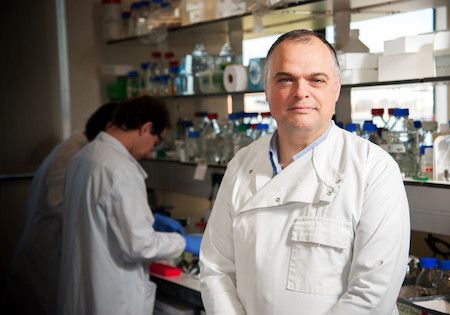| Online: | |
| Visits: | |
| Stories: |

| Story Views | |
| Now: | |
| Last Hour: | |
| Last 24 Hours: | |
| Total: | |
Breakthrough Could Protect Against Lethal Superbug
The new treatment, which uses a molecule called an inhibitor to prevent the hospital superbug Klebsiella pneumonia from blocking the body’s natural defences, has the potential to save thousands of lives in the UK each year. Klebsiella, which has mortality rates of 25-60%, can cause bladder infections and pneumonia and is resistant to all major antibiotics.
The team showed that by treating the cell with the inhibitor – which stops ‘Akt’ protein from working – the blood cell is once again capable of killing Klebsiella and the infection can be completely eliminated.
Team leader, Professor Jose Bengoechea, from the School of Medicine, Dentistry and Biomedical Sciences at Queen’s, said: “The global problem of antimicrobial resistance is fast becoming one of the major health issues of modern times. Of particular concern is the mounting prevalence of infections caused by Klebsiella pneumonia which has been identified as an urgent threat to human health by the UK government and the World Health Organisation due to extremely drug resistant strains.
“Our research has helped us gain a better understanding of the vulnerable pathways of human defences, meaning we have been able to develop a potentially ground-breaking new therapy that will block the bug and stop it in its tracks. This is the latest example of the commitment of researchers and staff at Queen’s to advancing knowledge and achieving excellence for the benefit of society.”
The research team at Queen’s plan to carry out preclinical trials over the next months to further confirm their findings and move the therapy forward into human clinical trials.
Contacts and sources:
Queen’s University Belfast
Citation: “Klebsiella pneumoniae survives within macrophages by avoiding delivery to lysosomes”, Cellular Microbiology
Victoria Cano1,2,†, Catalina March1,2,†, Jose Luis Insua3,†, Nacho Aguiló2,5, Enrique Llobet1,2,4, David Moranta1,2,4, Verónica Regueiro1,2,4, Gerard P Brennan6, Maria Isabel Millán-Lou2,5, Carlos Martín2,5, Junkal Garmendia2,7 andJosé A. Bengoechea3,8,* DOI: 10.1111/cmi.12466 http://onlinelibrary.wiley.com/doi/10.1111/cmi.12466/abstract
Source:




